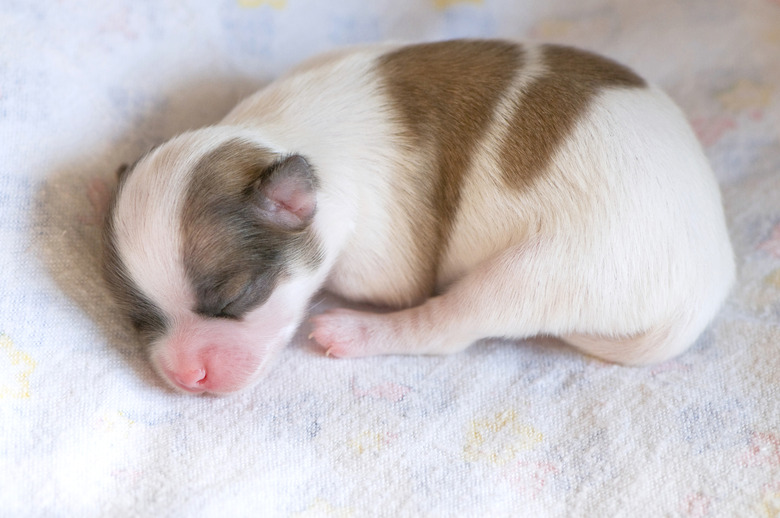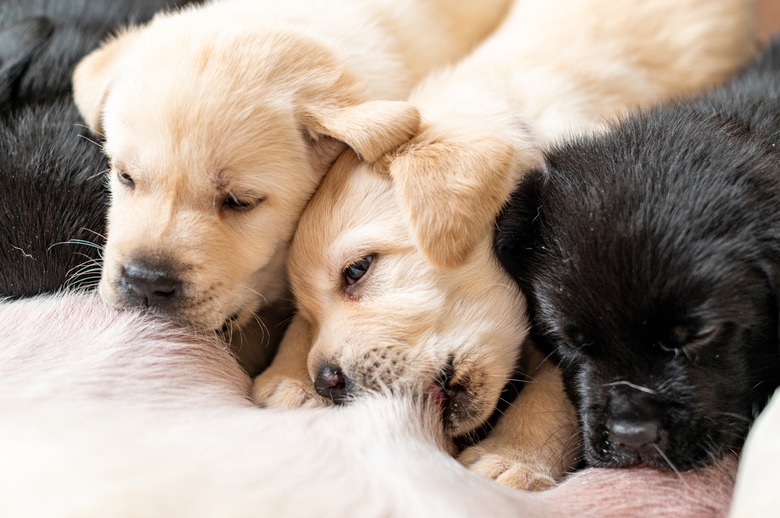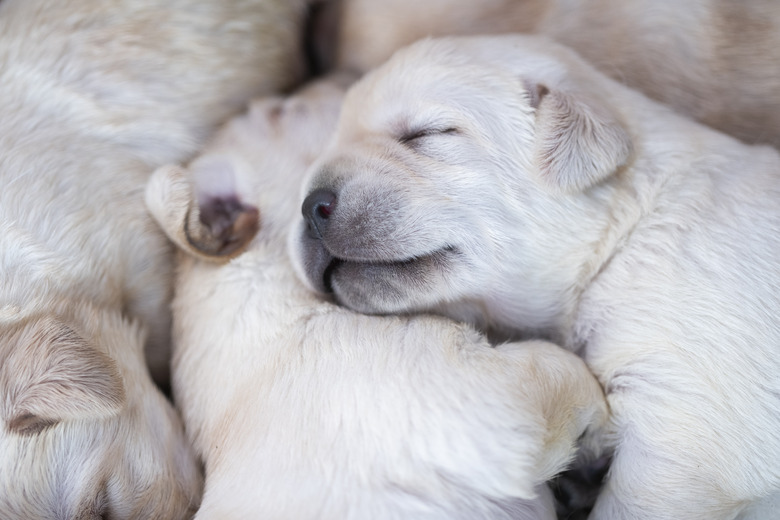How Soon Do Puppies Nurse After They Are Born?
Within minutes of being born, newborn pups will demonstrate their instinctive need to seek out their mother, find a nipple, and begin nursing. This instinct ensures that they remain warm and that they drink colostrum. Puppies who fail to suckle shortly after birth may need assistance with nursing so that they receive the benefits of this early breast milk. Most puppies will nurse regularly until they are 8 weeks of age and they leave for their new homes.
How long do puppies nurse?
How long do puppies nurse?
Puppies should nurse approximately every two hours for their first two weeks of life. Later, between 3 and 4 weeks old, you can start to wean them on to solid foods. In addition to providing necessary nutrition, nursing also serves as a soothing behavior for the puppies and creates important bonding between the dam and littermates.
On average, mother dogs will nurse their young puppies until they are 7 to 10 weeks of age. Milk production will decrease as the puppies age. Some dams (mother dogs) can produce milk for more than 10 weeks and will happily nurse their puppies that long, while other dams will wean a litter of puppies as early as 4 weeks of age.
When do puppies start nursing?
When do puppies start nursing?
After birth, the mother dog will help new puppies out of their placenta and clean them for the first several minutes of their life. Immediately after their mother is done cleaning them, most puppies will instinctively seek out a nipple from which to suckle. So, nursing the first time starts pretty shortly after they are born.
Some puppies will be slow to seek out a nipple and can be guided gently toward one if necessary; as long as they are not vocalizing loudly and appear to be hydrated, it is all right to let these puppies find the nipples on their own. Puppies should nurse every two to three hours after birth. If they do not nurse for that period of time, bring them and their mom to the veterinarian to determine what might be wrong. They may require you to tube feed or bottle feed to ensure the little ones gain weight and are getting enough nutrients.
The benefits of colostrum for puppies
The benefits of colostrum for puppies
Newborn puppies do not have immunity to any diseases. The first milk that their mother produces is called colostrum, a thin, translucent liquid full of whatever antibodies she possesses. Feeding puppies this colostrum will provide the puppies with passive immunity, that is, provides a temporary boost for their immune systems to the diseases for which the mother dog has received vaccinations for or for which she has developed natural immunity through recovery from them.
Puppies must consume colostrum during their first 12 to 24 hours of life. After this period, a puppy's body can no longer absorb their mother's antibodies through the colostrum, and it loses its beneficial effect.
Helping with puppy milk replacer
Helping with puppy milk replacer
Although colostrum is beneficial for puppies, sometimes, the mother dog is unable to nurse her puppies due to mastitis or another health issue. Or, if you find a litter of orphaned puppies without a mother, they'll need to get some nutrition into their body immediately to thrive. That's where puppy milk replacer comes in if you can't find another nursing mother dog.
Puppy milk replacer contains similar ingredients to a mother's milk, much like formula for human children. Mix up the puppy formula as directed on the package and feed it to the little ones with a bottle or syringe. Note that cow's milk is not an appropriate substitute for growing puppies.
If you are bottle feeding newborn puppies, expect to feed them every three hours for their first two weeks of life and then every six hours for the next two weeks until you start weaning them.
When do puppies stop nursing?
When do puppies stop nursing?
Puppies grow up pretty quickly and will only be nursing full time from their mom for their first three to four weeks of life. After that, you can slowly start the weaning process and transition them off her milk and on to solid foods.
To easily transition them, you can mix a little puppy milk replacer and warm water into some dry kibble or wet puppy food to create a mushy gruel that will tempt their taste buds. Expect feedings to be a little messy as the little ones muck around in their dish while they eat. By around 8 weeks old, they should be eating puppy food exclusively.
Ensure mom gets the right food
Ensure mom gets the right food
While a mother dog is nursing her puppies and a couple of weeks before she gives birth, you'll need to provide her with a special high-quality food for pregnant and nursing dogs. This will ensure that she has the nutrition she needs to properly nurse the pups. Don't keep feeding her this food after you wean the puppies though, as that could make her overweight.
The bottom line
The bottom line
One of the first things that a newborn puppy will do in their first few minutes of life is seek out a nipple and begin to nurse. When healthy puppies can nurse from their mom, it ensures that they receive colostrum and are protected by their mother's antibodies. Most mother dogs will nurse their puppies until they are ready to go to new homes around 8 weeks of age. However, if for any reason the mother isn't producing enough milk or chooses to wean them early, you will need to supplement them with puppy milk replacer via bottle feeding or transition them to softened kibble.


